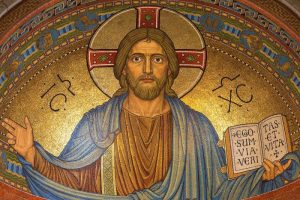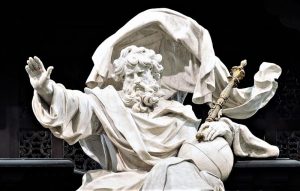Monotheism
Monotheism is the belief that there is only one God, which is transcendental. Monotheism is perhaps the most discussed and debated category of religious classifications. It is a type of theism, and is generally contrasted with polytheism, which believes in multiple gods and atheism who deny any belief in God. Abrahamic beliefs, as well as Plato's concept of God, support monotheism, and this is the usual conception debated within Western philosophy of religion. The idea of a true God, who is the creator of the world, has been a powerful force in the creation of self-identity and the growth of Abrahamic religions, as well as covering the concept of a shared humanity that is united in religious brotherhood.
What is monotheism?
Monotheism is the belief that there is only one God. It is a type of theism that contrasts polytheism and atheism in all aspects. It is the presence of a true God, who in turn was the only creator of the universe.
Characteristics of monotheism
- All monotheists share the same belief that God is the creator of the world, that He is omnipotent, and that human morality is defined by conformity to God’s will.
- They believe that God’s power must be infinite, or at least immeasurably vast.
- The three main monotheistic religions are: Islam, Christianity and Judaism, all of which are Abrahamic religions.
- The typical monotheistic god is omnipotent, omniscient, is the supreme creator and the first cause of all existence, he is perfect and affable and personal, which means that he communicates with his children in a personal way.
Origin
The term comes from the Greek words: μόνος or monos meaning alone, and θέος theos meaning God. The first evidence of monotheism was given in Egypt in the 14th century B.C. during the reign of Akhenaton because only Aten, the god of the solar disk, was worshipped. Monotheism is an ancient idea and had a number of religious and cultural influences for thousands of years before the emergence of modern monotheistic religions such as Judaism, Christianity, and Islam.
The idea was codified most clearly in ancient Greece among the pagan sages, but long before that it had already appeared in Egypt, 3400 years ago and perhaps up to 4000 years ago. In biblical chronology, we see that the establishment of Israel State would constitute the first true monotheistic state in the world.
Importance
When monotheism arose, had an effect on people’s values and helped to develop equality and equity among the people of that time. Under the one covenant God we find in monotheism different laws were built to develop a moral concept for people, to ensure a stable environment and to establish rules about how people should act among themselves.
These world laws are also known as “The Ten Commandments” and were very effective and important because each person was punished equally if they disobeyed any of the commandments. It is important to give credit to those who deserve it and to learn to appreciate and respect the people of that time for helping to shape the world, despite the inequalities as we know it today.
Christian monotheism
This kind of monotheism tells us that there is only one God. Its central axis is based on the biblical message that can be found in both, the Old and New Testaments. These writings explain clearly and without a doubt, that there is only God. Christianity teaches us that there is a mystery of the Holy Trinity and that this mystery is based on the presence of one God in three equal and distinct persons: the Father, the Son and the Holy Spirit.
Jewish monotheism
For the Jewish monotheist, the Israelite, God is unique in his essence and lives in nature. He is a God who is close to man and shows his infinite love for him. God does not need to materialize to be sensitive to his children nor does he need to become a kind of “mediator” to reveal himself to them. The One God does not need to resort to any intermediary, hypothesis or belief in order to communicate with man.
Monotheism in Egypt
Akhenaton ordered to destroy the temples that belonged to other gods, because for him, all were false and Aton was the only God, however, had opposition from his people because they feared that if they followed the new doctrine of Pharaoh, the other gods would punish them. At the same time, it was impossible for them to disobey his command, so they appeared to take that divinity seriously, although they continued to make sacrifices in secret places. It was until the end of his period that Tutankhamun returned the worship to the other deities to appease the people and the priests, renewing people’ peace.
Hebrew monotheism
The main characteristic of Hebrew monotheism was its belief in the existence of its own god, Yahweh, whose essence was highly spiritual, indefinable and unrepresentable. This belief was evolving and then based on a monotheistic religion, based on the existence of a single God, creator of the world and men. For Hebrew people, Yahweh would have chosen them by letting them know the fundamental truths of religion. In this way, in the departure from Egypt to Canaan, Yahweh would have appeared before Moses giving him the Tables of the Law or Commandments.
How to cite this article?
Briceño V., Gabriela. (2019). Monotheism. Recovered on 3 January, 2025, de Euston96: https://www.euston96.com/en/monotheism/










